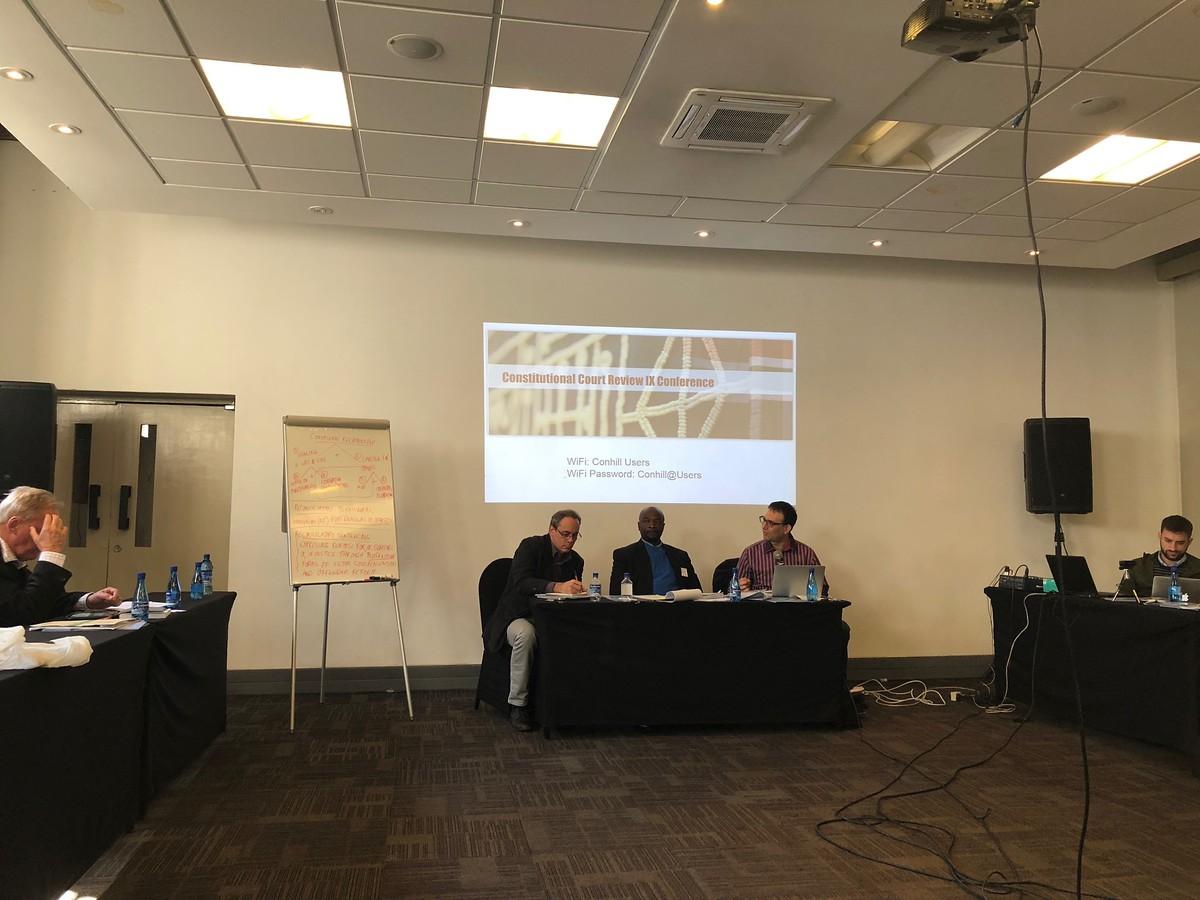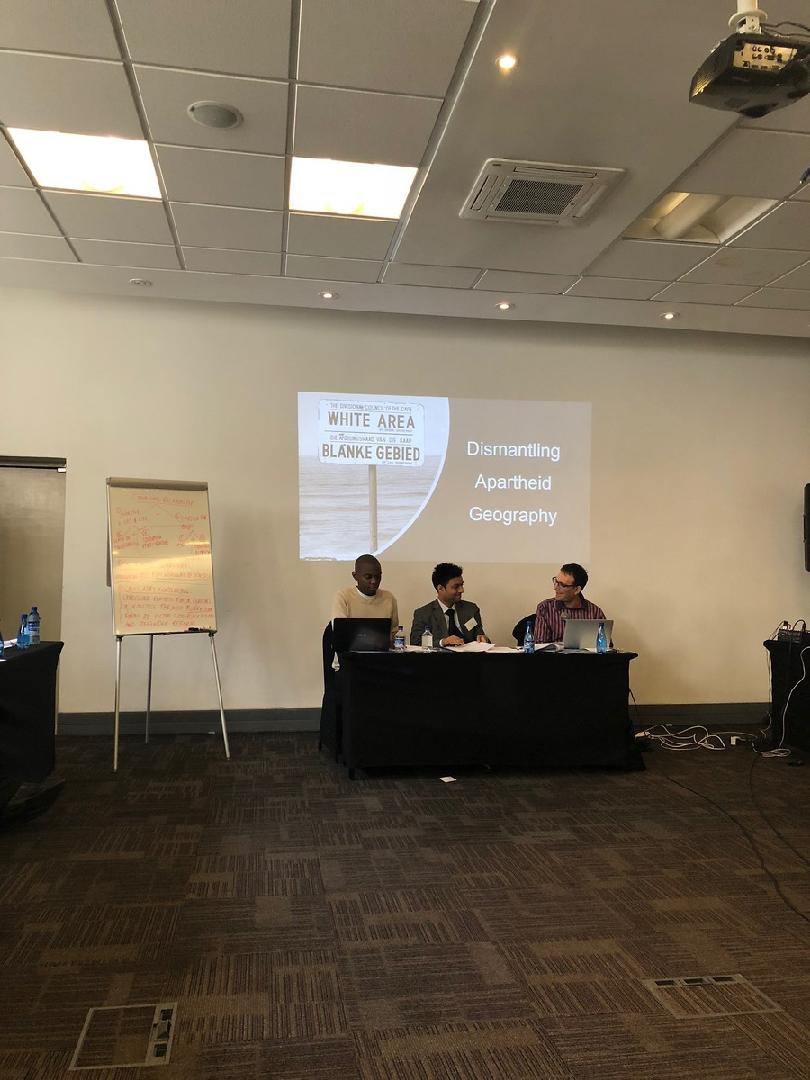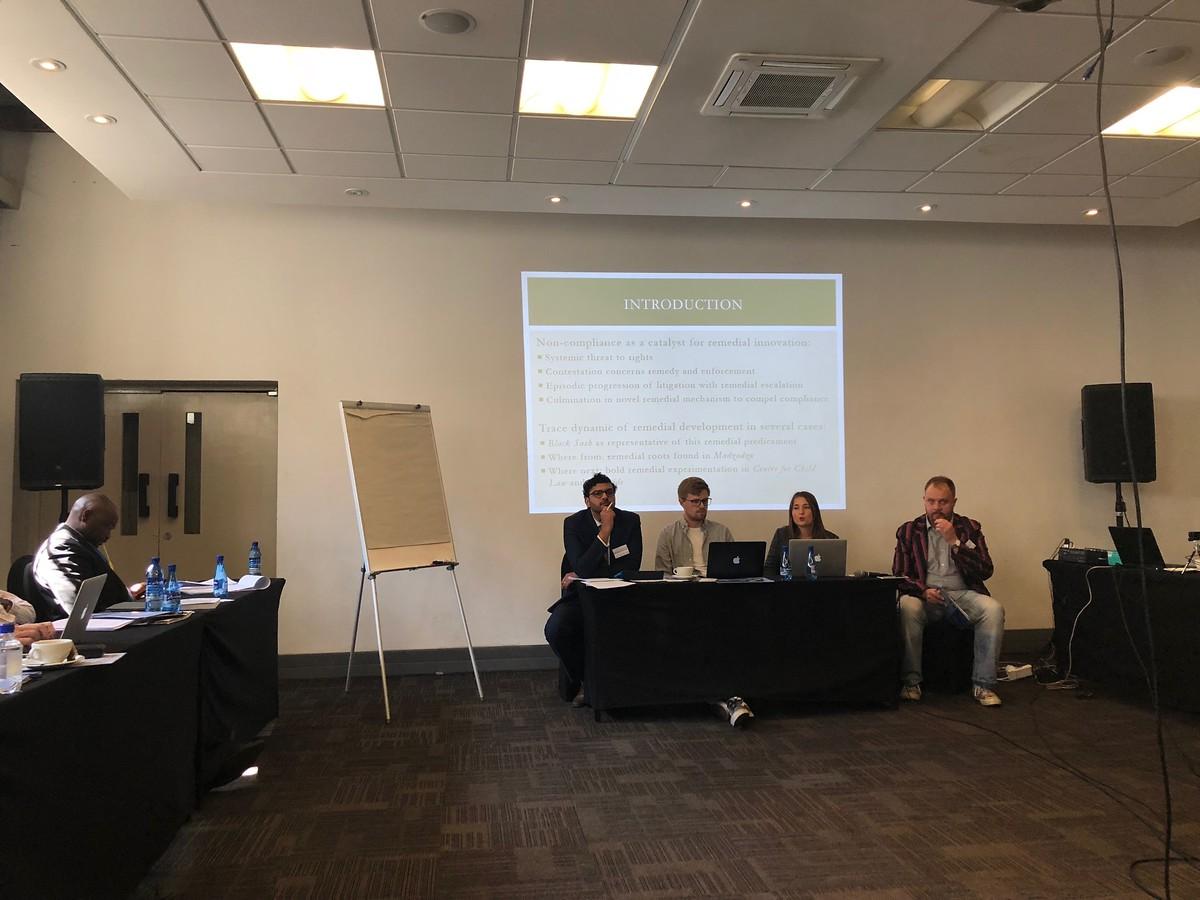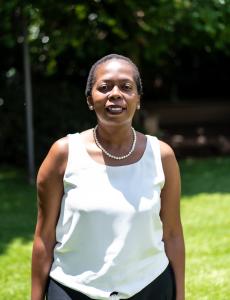Constitutional Court Review Seminar - Foundation Office South Africa
Prof. Stuart Woolman, convener and editor of Constitutional Court Review (CCR) journal opened the proceedings with the welcoming remarks acknowledging and thanking all stakeholders who make CCR journal a success. CCR journal is an accredited journal which reviews Constitutional Court decisions of the previous year and stimulates academic engagement with it.
The first session started with a panel discussion on the rule of Law, legislative rule-making and anti-Corruption efforts, the panelists were Stephen Gardbaum, (University of California), Aziz Huq, (University of Chicago) and Firoz Cachalia, (University of Witwatersrand). The panel highlighted the importance of the separation of powers. Emphasis was also put on the people being at the center of the Constitutional process. Some of the questions and comments posed during the discussion session was that there are deep structural problems with South Africa’s constitutional design. However, this comment was refuted by Mr. Cachalia who said the South African Constitution was well drafted however; there are problems of inequality in society. The next presentation by Martin Brassey, (University of Witwatersrand) was on the race-based jurisprudence of the Constitutional Court. In his abstract Brassey “believes that the court has, in the main, been doctrinally sound in the exercise of its mandate to combat discrimination, but regrets the failure to root the analysis more firmly within the received traditions of the common law”.
The second panel was on land, property and section 25, the panellists were Michael Bishop, University of Cape Town he presented a paper he co-wrote with Adv. Tembeka Ngcukaitobi, (Legal Resources Centre and University of Johannesburg), Jackie Dugard, (University of Witwatersrand) and Nompumelelo Seme also from (University of Witwatersrand). The session was chaired by Raisa Cachalia, (SAIFAC). Michael Bishop’s paper started with the following questions:
- Does the Constitution permit expropriation without compensation?
- If so, in what circumstances?
- If compensation is paid, how must the amount be calculated, and what process must be followed?
He clarified that the question under the Constitution is not whether expropriation without compensation is constitutionally permissible. It is. The question is when it is permissible to expropriate without compensation. In particular, “when is it constitutionally permissible to expropriate land without compensation in order to advance land reform”? Jackie Dugard indicated in her presentation that only 33 percent of South Africa’s land is in private hands while the remaining 67 percent belongs to government, companies, trusts, traditional authorities etc. Dugard conducted research in Stellenboch: the respondents mentioned that they want to own property to leave an inheritance for their children.
Nompumelelo Seme commented on the land reform hearings which are currently underway. The hearings came as a result of the joint review committee being instructed by the National Assembly and the National Council of Provinces to see whether reviews of section 25 and other clauses are necessary to make it possible for the state to expropriate land without compensation. Seme highlighted that the hearings are not only about land dispossession but also about the pain and humiliation people felt during dispossessions and some are still feeling that pain even today.
The second day of the Constitutional Court Review Seminar was divided into six parts: First, the notion of Ubuntu and the influence of the African Moral Theory on the Constitution were outlined, then housing and spatial segregation were examined. Thereafter, remedies and the development of the Common Law as well as reproductive rights and children’s rights were discussed. The last two sessions focused on the case of Al-Bashir but also access to justice and the right to the environment. Each part consisted of presentations by expert speakers from diverse professional backgrounds (e.g. academia and law and legislation), who introduced and summarized their draft papers. After each session, the audience was provided with the opportunity to ask questions, raise concerns or elaborate on certain aspects of the presentations as well as to give feedback on the respective draft papers.
The first session started with presentations from Thad Metz (University of Johannesburg), Tom Daly (Edinburgh Centre for Constitutional Law and, Melbourne Law School), and O´Brian Kaaba (University of Zambia). The overarching topic was the influence of the African Moral Theory on the Constitution. Metz began his presentation with a definition of the Ubuntu principle while he emphasized the sense of togetherness and communal relationship. Thereby, he compared the standard view with the alternative (Ubuntu) view of punishment.
Key aspects of his presentation were the notion of reconciliation and the focus on the protection of society. The other two presentations focused on how the ideal criminal justice system should look like while the discrepancy between theory and praxis was highlighted. After the presentations, many questions and comments were raised. A reoccurring theme during the panel discussion was the Constitutional Court’s assessment of punishment as well as the role of victim and offender.
The second session featured Ajey Sangai (University of Jindal) and Frank Madlalate (Legal Resources Centre), who both addressed socio-economic issues related to the lack of available and affordable housing in South Africa as well as India. Sangai spoke about the powerlessness of homeless people while he compared the case of South Africa with that of India. He drew attention to the unequal distribution of housing and, further, posed the question of what it means to inhabit a society. He also shed light on socio-economic rights and particularly the right to housing. Madlalate on the other hand focused more on racial as well as spatial segregation within the housing sector. He emphasized that law and space actively shape and constitute society. Therein, he examined increasing rural-urban migration and its impact on the accessibility and quality of housing. During the panel discussion, questions concerning the notion of the ‘right to the city’ were raised while the requirements for a minimum of housing were debated.
Thereafter, remedies and the development of the Common Law were discussed by Muhammed Suleman (Kwa-Zulu Natal Bar), Helen Taylor (Oxford University), and Mitchell De Beer (University of Notre Dame). All three panelists applied various cases to exemplify their key arguments such as the interrelation and cooperation between High Court, Constitutional Court, and Supreme Court as well as the issue of constitutionality. A range of topics were discussed while interesting overlaps between the draft papers were observed.
After a brief lunch break, Meda Couzens (University of Kwa-Zulu Natal) and Mr. Donrich Thaldar (University of Kwa-Zulu Natal) shed light on reproductive and children’s rights during the fourth session of the day. Both panelists referred to the Convention of the Rights of the Child while they posed the question when or where the best interest of the child applies as an independent right as the interest of the adult and those of the child are interlinked. Thaldar applied two examples of reproductive rights and, therein, issues of legal compliance. Identity formation, psychological wellbeing, as well as psychological and physical integrity were discussed with regard to biracial parents and surrogacy.
During the colloquy, Mia Swart (Human Sciences Research Council) discussed her draft paper on the case of Al-Bashir. Within her presentation, she stressed norm-conflicts in international law and, therein, the hierarchy of norms. She also assessed what the case of Al-Bashir could have looked like as she argued that norm-conflicts within the Constitutional Court as well as tensions between international and domestic law were evident. Afterwards, Swart received extensive feedback and comments regarding her draft paper while she elaborated on key arguments and intensions.
The last session of the day featured Robert Freeman (SAIFAC) and Ruth Kruger (University of the Witwatersrand). The overarching topic was the access to justice and the right to the environment. Freeman posed questions concerning the state and its role as well as the relationship between a private person and the state. He also questioned what rights are and to what they extent to. A reoccurring theme during his presentation was state’s failure and, therein, political and social implications. Ms. Kruger argued that the Constitutional Court should function as an ‘upper guardian’, especially with regard to environmental issues while she stressed the importance of sustainable development and the relation between society and economy to the environment. She also claimed that the Constitutional Court should play a more active role in creating environmental jurisprudence in terms of strategic environmental assessment. The question remains how the Constitutional Court should facilitate that, especially the role of an ‘upper guardian’. Moreover, the role of the High Court was questioned during the panel discussion.
Overall, the second day of the Constitutional Court Review Seminar was well attended and all the participants were actively engaged within discussions. Every panelist received extensive feedback and suggestions for improvement on their draft papers. The fruitful debates continued after the seminar was officially closed as everyone appreciated the support of their peers.






